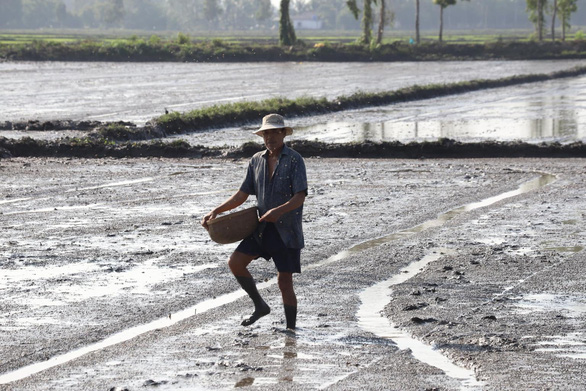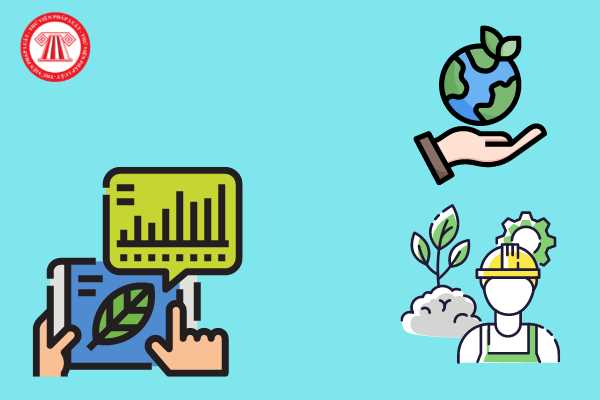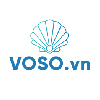“If there is no specific output, farmers will have to choose a farming method so that agricultural products can be highly productive to easily sell to traders, the market is easy and unstable. At that time, the habit of using feces and drugs will return to the same, "said Tung.
TTO – High-end markets are constantly expanding, but many coal enterprises face difficulties when agricultural products are still produced according to the habit of using a lot of inorganic fertilizers and pesticides.
Although the output of dragon fruit in some localities is very large, there are not many qualified products for export to difficult markets – Photo: BUU DAU
Nhiều địa phương ở Đồng bằng sông Cửu Long cũng nỗ lực để hướng tới một nền sản xuất sạch, vừa giúp giảm chi phí vừa giúp vấn đề xuất khẩu của doanh nghiệp được thuận lợi hơn.
Farming practices must be changed to increase the quality of agricultural products
Mr. Tran Vu Dinh Thi, deputy director of An Giang Import-Export Joint Stock Company (Angimex), said that although Angimex is one of the top rice exporters in An Giang in particular and the Mekong Delta in general, Angimex always difficult to find rice sources without residues of pesticides for export. The reason is because of the fragmented production and lack of linkages between farmers and businesses, leading to heterogeneous rice varieties, unreasonable fertilizer use and lack of control. Meanwhile, the needs of importers are increasingly strict on food safety.
To solve this dilemma, Angimex has cooperated with many local farmers and cooperatives to create clean production areas according to standards, creating products to meet the needs of the import market. This enterprise has also researched and connected with hundreds of farmers in An Giang to join the rice production team under the company's plan to ensure that rice is eligible for export to European markets.
However, going into practice, it is difficult to see that very few farmers are willing to "cooperate" to limit spraying and use fertilizers at the request of enterprises. Not to mention, the situation of "breaking commitments" is very easy to happen when there is a price fluctuation.
“In order to have enough rice to meet the standards for export to Europe, we always buy rice from farmers higher than normal production. However, when rice prices are high, many farmers leave their businesses. On the contrary, there are businesses that force farmers to price, but no one has come forward to solve this story," Mr. Thi said.
Meanwhile, Mr. Nguyen Quoc Trinh, chairman of the Long An Dragon Fruit Association, said that farmers are also more aware of less use of pesticides to ensure products can meet the output. According to the requirements of the buyer or the export market. However, the use of inorganic fertilizers is still the dominant farming method today and this trend is still difficult to change in the near future.
Therefore, the export of dragon fruit to Europe, the US or other fastidious markets is still small. According to Mr. Trinh, the use of inorganic fertilizers is often effective in a short time, especially the period when it is necessary to grow and produce beautiful fruit.
“Meanwhile, the European and American markets are mainly concerned with quality assurance rather than design. Therefore, in order to expand the export market with this fruit, farmers have to change their farming practices," Mr. Trinh admitted.
Rice farmers in the Mekong Delta still have the habit of using a lot of fertilizers and pesticides – Photo: CHI QUOC
Ensuring output of agricultural products, farmers will change
In recent years, Vietnamese rice that wants to enter the Chinese market also complies with strict regulations, including higher and higher residues of banned substances. “Each country has its own regulations. Vietnamese rice being accepted in the two markets mentioned above does not mean that it will also be exported to other markets, "he added.
According to Mr. Nguyen Dinh Tung - General Director of Vina T&T, to ensure sufficient orders from abroad, Vina T&T must take care and create planting areas to ensure the technical barriers that the market offers. Different markets have different technical barriers, but in general, the market trend is to encourage farming with organic fertilizers, clean production.
The products exported by the company all have area codes, geographical indications, etc., and businesses must link and ensure that farmers cultivate according to standards. “In exporting, if we do not follow closely and if we violate only one product, it will not only affect and damage ourselves but also affect the country's agriculture. Therefore, linking and monitoring the planting area is always a priority, "said Mr. Tung.
Mr. Tung said that while farmers in Binh Thuan or Tien Giang sell dragon fruit as cheap as giving, even having to throw it away, this business does not have enough goods to export. Because these products do not guarantee quality, are not in a process controlled by this enterprise, they cannot be purchased for export.
"The export demand for fruit in particular and Vietnamese agricultural products in general is still very high, the problem is whether we can create quality products to meet the needs of the market." Mr. Tung said.
Therefore, according to Mr. Tung, if you want to change the habit of growing crops with organic fertilizers, without abusing pesticides, the most important thing is to ensure output for farmers. When there is a guaranteed output, farmers will surely follow.
“If there is no specific output, farmers will have to choose a farming method with high productivity to easily sell to traders, the market is easy and unstable. At that time, the habit of using feces and drugs will return to the same, "said Tung.
Too dependent on fertilizer and pesticides for Agricultural products
According to the Plant Protection Department, in the period of 2017-2020, the average amount of industrial fertilizer used in the country is 10.3 million tons. In 2020, this figure is 10.23 million tons, of which chemical fertilizer is 7.6 million tons and organic fertilizer is 2.63 million tons. The average amount of fertilizer used is 753kg/ha planted, higher than the world average. The Mekong Delta provinces have an average fertilizer use of 1,071kg/ha, 42% higher than the national average.
In previous years, the quantity of plant protection drugs imported and produced fluctuated on average in the range of 80,000 - 100,000 tons/year, of which the amount of imported biological pesticides was estimated at 15,000 - 16,000 tons/year. five. The amount of plant protection drugs produced domestically accounts for only about 50%, pesticides imported for export or processing for export account for about 30% and about 20% are preserved in warehouses and circulated on the market. .
Many models reduce the use of fertilizers and pesticides for agricultural products
Le Quoc Dien, deputy director of Dong Thap province's Department of Agriculture and Rural Development, said the local agriculture industry is gradually shifting to models that use less fertilizers or only use organic fertilizers and aim to not spray pesticides.
Specifically, the rice-shrimp model for livelihoods for people in flood-prone areas, rotation of 1 winter-spring rice crop - 1 crop of giant freshwater shrimp by renewing the rotation of rice - giant freshwater shrimp has more advantages than before; the rice-lotus model when farmers sow the winter-spring rice crop and plant lotus in the remaining crop each year; model of advanced rice production, saving water applying 4.0 technology solutions at My Dong 2 Cooperative, My Dong commune (Thap Muoi district) with a scale of 66.5 ha...
According to Huynh Ngoc Nha - director of Soc Trang province's Department of Agriculture and Rural Development, many affiliated units have coordinated with localities to deploy a number of production models to reduce input costs, especially fertilizers and pesticides. “There have been a number of cost-saving and cost-effective production models in rice, fruit trees, etc., which have been deployed and initially effective. In the near future, we will organize an evaluation and choose some effective models to replicate for people to implement widely," said Mr. Nha.










Recent Comments